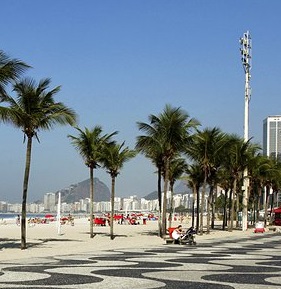In Sao Paulo, house prices fell by 2.41% y-o-y in Q1 2019
Brazil’s housing market continues to struggle, despite improving economic conditions. In Sao Paulo, house prices fell by 2.41% during the year to Q1 2019, from annual declines of 1.89% in Q4 2018, 2.52% in Q3, 2.38% in Q2 and 1.11% in Q1. On a quarterly basis, house prices in Sao Paulo fell slightly by 0.72% in Q1 2019.

Brazil’s political turmoil
The crisis started in 2013 when the central bank raised key interest rates nine times to 11% in April 2014, causing a sharp economic slowdown.
In 2016, President Dilma Rousseff has been impeached, the speaker of the house has been jailed, five Cabinet ministers have been removed or allowed to step down because of allegations of corruption. Brazil's new president, Michel Temer, is embroiled in a corruption scandal.
Worse, another massive bribery scandal, involving Brazilian construction giant Odebrecht, disrupted politics, not just in Brazil, but in more than half of the countries in Latin America, as well as in Angola and Mozambique in Africa. Odebrecht is behind the construction of venues for the 2014 World Cup, the 2016 Olympics, the metro systems in Caracas, and other huge infrastructure projects.
The crisis helped right-wing candidate and retired army officer Jair Bolsonaro sweep to victory during the October 2018 presidential election on a populist, anticorruption platform.
In Q1 2019, Brazil’s unemployment stood at 12.7%, up from 11.6% in the previous quarter but slightly down from 13.1% a year earlier, according to the government’s statistics agency IBGE.
Rents, rental yields: rental yields are moderate ranging from 3% to 6%
Rio apartments costs are around $4,370 per sq. m.
| Brazil: typical city centre apartment buying price, monthly rent (120 sq. m) | |||
| Buying price | Rate per month | Yield | |
| Sao Paulo | $524,400 | $1,000 | 5%-6% |
| Rio de Janeiro | $709,200 | $1,200 | 3%-4% |
Recent news. Brazil’s economy is estimated to have contracted by 0.68% in Q1 2019 from the previous quarter, based on preliminary figures released by the Central Bank of Brazil. On an annual basis, the economy grew by a meagre 0.23% in Q1 2019, down from expansions of 1.1% in Q4 2018 and 1.3% in Q3 2018. The economy is projected to expand by 1.5% this year, following growths of 1.3% in 2018 and 1% in 2017 and contractions of 3.5% annually in 2015 and 2016, according to government estimates.